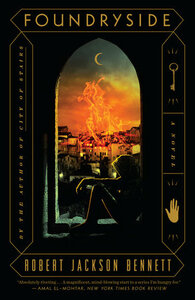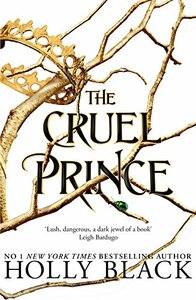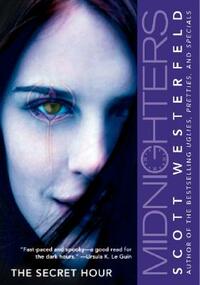You need to sign in or sign up before continuing.
Take a photo of a barcode or cover
tinyzap's Reviews (280)
Too much mind speak and telling over showing. I cannot do entire pages of italics! And reading inner monologues or telepathic conversations <inside brackets like this> makes me think of work. I know I'm in the minority here. The world building was interesting, but the writing fell short of my expectations.
"I lost my virginity to the apocalypse!"
Scott Westerfeld's Peeps is another great off the wall vampire novel. A far cry from Anne Rice's sultry, albeit long, stories about vampires, Westerfeld takes the classic vampire and pretty much rips it apart. In Peeps vampires are more like people with a nasty case of syphilis than sexy indestructible gods. Being a vampire means being infected with a parasite that craves circulation above all else. Drinking blood is kind of a... side effect of the parasite. The parasites main goal is to spread, through biting, sex or any other exchange of bodily fluids.
Aside from being about vampires and STDs, Peeps is first and foremost about parasites. Every other chapter gives us some disgusting insight into a different real world parasite like toxoplasma gondi, of which every cat owner on the planet probably has. Its the reason pregnant women can't clean out the litter box. Cats play an important role in the book too, but so do rats, so that's not saying much.
Don't worry, the parasitic chapters don't read like a text book or Wiki entry, Westerfeld makes it feel like the main character is just telling us about the parasite, conversationally. Like we're hanging out on the subway chatting about lice and screwflies. They aren't just there for shock value either, these parasite chapters are more important than you might think. They give us some insight into the main plot of the book, which is essentially about the parasites. Some are good, some are bad, some fight with each other inside your colon.
In the beginning it seems like it really is just another vampire novel, but after a few odd chapters about different parasites that live on your body (or in it) you start to realize there's something else going on here. The parasite chapters are almost more insightful than the actual story. Each time he talks about a new parasite a new characteristic of the vampire parasite is revealed, until finally, we actually get what the hell is going on.
Westerfeld makes reading about parasites interesting, and hey, any author who can accomplish that is good enough in my book. The book is fairly short and reads quickly too. Even if vampires aren't your thing, you might learn something new about a menacing parasite that can set up shop in your leg, where Crohn's disease comes from and how wasps saved an entire populace.
Scott Westerfeld's Peeps is another great off the wall vampire novel. A far cry from Anne Rice's sultry, albeit long, stories about vampires, Westerfeld takes the classic vampire and pretty much rips it apart. In Peeps vampires are more like people with a nasty case of syphilis than sexy indestructible gods. Being a vampire means being infected with a parasite that craves circulation above all else. Drinking blood is kind of a... side effect of the parasite. The parasites main goal is to spread, through biting, sex or any other exchange of bodily fluids.
Aside from being about vampires and STDs, Peeps is first and foremost about parasites. Every other chapter gives us some disgusting insight into a different real world parasite like toxoplasma gondi, of which every cat owner on the planet probably has. Its the reason pregnant women can't clean out the litter box. Cats play an important role in the book too, but so do rats, so that's not saying much.
Don't worry, the parasitic chapters don't read like a text book or Wiki entry, Westerfeld makes it feel like the main character is just telling us about the parasite, conversationally. Like we're hanging out on the subway chatting about lice and screwflies. They aren't just there for shock value either, these parasite chapters are more important than you might think. They give us some insight into the main plot of the book, which is essentially about the parasites. Some are good, some are bad, some fight with each other inside your colon.
In the beginning it seems like it really is just another vampire novel, but after a few odd chapters about different parasites that live on your body (or in it) you start to realize there's something else going on here. The parasite chapters are almost more insightful than the actual story. Each time he talks about a new parasite a new characteristic of the vampire parasite is revealed, until finally, we actually get what the hell is going on.
Westerfeld makes reading about parasites interesting, and hey, any author who can accomplish that is good enough in my book. The book is fairly short and reads quickly too. Even if vampires aren't your thing, you might learn something new about a menacing parasite that can set up shop in your leg, where Crohn's disease comes from and how wasps saved an entire populace.









